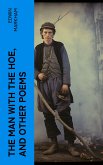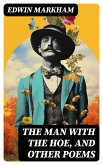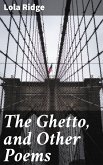In "The Man with the Hoe, and Other Poems," Edwin Markham employs a poignant and evocative lyrical style, richly layered with social commentary. This seminal collection, first published in 1899, encapsulates the plight of the laboring class and the moral responsibilities of humanity, vividly illustrated through the titular poem, inspired by a painting by Jean-Franvßois Millet. Markham'Äôs use of vivid imagery and rhythmic cadences not only engages the reader'Äôs senses but also places the poems within the context of late 19th-century America, a period of profound social upheaval and the burgeoning labor movement, resonating with calls for justice and equality. Edwin Markham, a prominent poet and social reformer, was deeply moved by the injustices faced by workers during the industrial revolution, perhaps influenced by his upbringing in a modest farming family. His commitment to advocating on behalf of the disenfranchised is evident throughout his oeuvre. The experiences and observations drawn from his life inspired Markham to craft compelling narratives that shed light on human suffering and the quest for dignity. This book is highly recommended for readers who wish to explore the intersections of art, social justice, and poetry. Markham'Äôs masterful command of language invites readers not only to appreciate the beauty of his verse but also to reflect on the enduring relevance of his themes in contemporary society.
Dieser Download kann aus rechtlichen Gründen nur mit Rechnungsadresse in A, B, BG, CY, CZ, D, DK, EW, FIN, F, GR, H, IRL, I, LT, L, LR, M, NL, PL, P, R, S, SLO, SK ausgeliefert werden.









